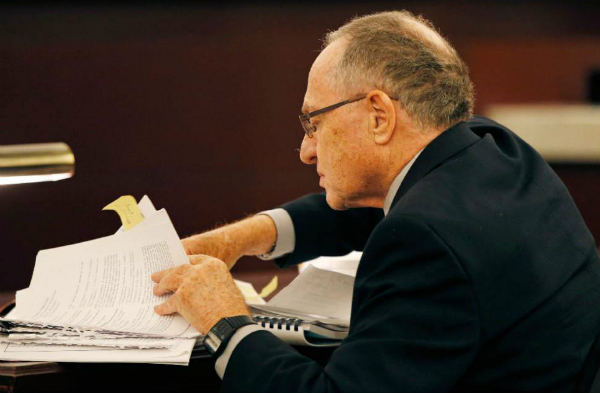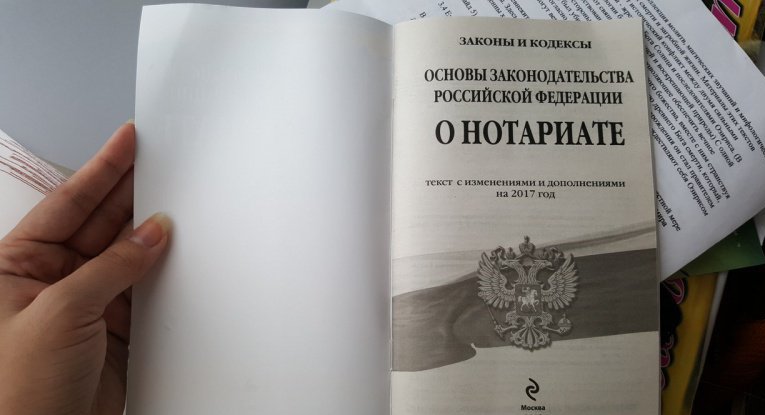Refusal to perform notarial acts - the notary’s decision not to provide the service requested by the client. What grounds can there be for this and what do notaries take into account in their activities.? What aspects does the application of the law have?
Legislative regulation
“Fundamentals of the legislation of the Russian Federation on notaries” is a normative act containing the basic rules governing the activities of this category of lawyers. Document:
- lists their rights and obligations;
- a list of notarial acts they perform;
- general description of the procedure for the provision of services;
- pricing;
- organization of control by the Ministry of Justice;
- the procedure for appealing against actions that the interested person considers illegal (in fact, a reference is made to the Code of Civil Procedure).
A normative act affects many other nuances of this sphere.

However, regulation is not limited to law. The FNP issues recommendations, letters of a recommendatory nature, but actively used.
Nevertheless, the “Fundamentals of the legislation of the Russian Federation on notaries” remain an act applied directly, and not through the publication of a large volume of regulatory acts.
Regional authorities have the right to provide additional rights to notaries on their territory, in addition to those specified in the law.
The regulation of notarial acts establishes a list of facts and documents that a notary needs to provide services. His publication is aimed at eliminating the cases of demanding unnecessary, legally unnecessary documents from people.
Notary Rights
What are the rights and obligations of a notary? Let's start with the rights:
- to perform the actions provided for by the relevant law when applying to citizens and organizations;
- draw up draft contracts, documents, prepare copies of them, extracts from them;
- clarify the current legislation in the field of its competence;
- to ask individuals and organizations to submit, upon request, the documents they have;
- take part in the registration of real estate on cadastral registration and registration of rights;
- receive extracts from the cadastral registration and registration of real estate rights;
- receive extracts from the register of legal entities and individual entrepreneurs.
What law provides for obligations
- A notary is obliged to help citizens in the exercise of their rights, to clarify legislation, to report on the legal consequences of planned or ongoing actions.
- The notary must keep secret about the acts committed by him, only the court has the right to exempt him from the oath in the event that the criminal case begins due to the notarial act.
- Take a refresher course at least once in 4 years.
- Refuse to perform actions if they contradict the legislation of the Russian Federation or international obligations of the country.

Thus, the list of rights and obligations of a notary consists of a relatively small list, but each item is not as simple as it seems at first glance.
A little bit about the structure
A notary is a corporation of professionals rather than a hierarchical organization operating in a subordinate regime. Notaries have the right to act within the limits allotted by law at their discretion.For example, they actually work within the framework of specialization, someone prefers to certify transactions, someone - to draw up an inheritance.
Now almost all the notaries who meet are private practitioners, that is, they work at their own peril and risk and are not financed from the budget. They pay the rent of premises and the work of assistants at their own expense, and they are not removed from the obligation to pay taxes to the budget and deductions to insurance funds.
How do state notaries work? The law says almost nothing about them, only a reference is made to the right of the Ministry of Justice to establish such offices. However, their absence in any territory should not limit citizens, and in such a situation, the municipal administration official is vested with the right to perform notarial acts. Earlier, the lack of private notaries was compensated by the organization of the state notary office. Now such a policy is recognized as inappropriate, and part of the functions, if necessary, are transferred to the municipality. However, such offices still exist.
General procedure for the provision of notarial services
The procedure for notarial actions is an algorithm of actions of a notary or an official performing his functions in the provision of services to which he is authorized. How does everything happen?
The notary gives a brief consultation, asks clarifying questions in order to understand what the person who appeals really needs and whether it is possible to help him.
If so, then asks for the passport and documents that are needed to provide the corresponding service. The task of a notary public is, first of all, to make sure that the applicant is competent, in understanding what he wants and whether he is under pressure at that moment.

Naturally, no one requires a certificate from the hospital, but the right remains to refuse to perform the requested action if a person is suspected of mental abnormality.
Next, the notary checks the credentials of the applicant (examines the power of attorney, papers giving the right to represent the interests of the legal entity, etc.).
Documents certified by a notary public are formed on secure forms. His personal seal and signature is put as confirmation of the will of the persons in whose name the documents were issued.
Copies of almost all documents issued previously by a notary remain in the archive. For example, he is obliged to leave copies of contracts, powers of attorney and a number of other documents. Copies of papers not designated by law remain in the archive at the request of the notary.
Grounds for refusal to perform notarial acts
Art. 48 of the law offers a list of circumstances entailing a notary’s refusal to fulfill a client’s request:
- fulfilling the request of the applicant is an unlawful act;
- the requested service must be performed by another notary;
- potential client is legally incapable;
- the representative of the person does not have the appropriate authority;
- the proposed transaction on behalf of the organization is contrary to its charter;
- the proposed transaction is fully or partially contrary to the law;
- the submitted documents do not comply with the requirements of the law;
- The facts stated in the documents are not confirmed if additional evidence is required.

The list is not formally closed and exhaustive, but nevertheless one or another reason is present in notarial refusals.
Contradiction to the law
All, without exception, have the obligation to obey the law and act exclusively within its framework. So, for example, a notary does not have the right to certify transactions that violate the law. For example, a foreigner acquires ownership of a plot of agricultural land. Or the property is considered limited in circulation, and the participants in the transaction are not entitled to own it (for example, there is no permission to purchase weapons). There are many options, and actions that are contrary to the law do not only concern transactions.
Violation of the principle of territoriality
Art. 40 of the law lists cases where the freedom of choice of a notary is limited. For example, a real estate transaction is certified by a notary public working within the subject or region where this property is located.
The acceptance of securities and cash on deposit is made by a specialist at the place of fulfillment of the main obligation in connection with which the transfer takes place. The list set forth in the article is quite extensive.
Disability of the applicant
A notary proceeds from external manifestations of a person’s state. And he can refuse, as it was written above, if he has suspicions. Officially, incapacity is confirmed by a court decision.

Representative does not have authority
The authority is confirmed either by a power of attorney certified by a notary or by the head of the organization with the right of extradition.
In the notarial database you can check whether the submitted power of attorney has actually been issued.
The service will be refused if the term of the power of attorney is expired or it does not give the right to sign any documents or perform some actions. All powers must be specified in the document, otherwise it is considered that the holder of the power of attorney does not possess them.
Non-compliance of the transaction with the charter
The transaction is in one way or another contrary to the charter. There is no consent of the owners to the transaction, or it does not correspond to the nature of the activity. For example, under the guise of non-profit activity, the founders are trying to do business and want to conclude a deal aimed at generating systematic profit. The notary will refuse to certify if the director tries to go beyond the powers prescribed in the charter or the memorandum of association.

Inconsistency of documents with legal requirements
This includes passport defects, corrections, strikethroughs, the absence of a seal, the required number of signatures, other details, which are mandatory and confirm the validity of the document. A court decision should, for example, bear a mark on its entry into force, otherwise it will not be accepted by a notary.
Lack of confirmation of facts set forth in other documents
For example, in papers submitted to a notary public, there is a reference to a court decision. The notary will then ask for a decision. If the representative acts on the basis of a power of attorney from the organization, the notary will also be asked to present documents confirming the right of the official to issue powers of attorney. These include: the original charter of the organization, the order of appointment. Not having a complete set of documents in hand, a notary refuses to perform notarial acts.

Appeal against action or inaction
The activities of notaries are important, and its importance is difficult to overestimate. If the client believes that the actions or refusal of the notary does not meet the law, he has the right to complain.
Where does the refusal of notarial action appeal? Citizens have two ways:
- to go with a complaint to the local department of the Ministry of Justice;
- write a statement to the court.
Practicing lawyers note a higher efficiency of the second method. Control by the ministry has its advantages. It’s easier to make a complaint, inspections are faster, and notaries do not really like them.
At the same time, the trial, although it is conducted according to a special procedure, is somewhat more complicated than departmental verification, its effectiveness is higher. A court decision is binding on a notary.
Judicial control
The judge considers the complaints that are submitted to him; on his own initiative, he does not take any action.
Which court is applying? At the location of the notary's office or the person performing its actions (municipality official, officials of hospitals, hospitals, places of deprivation of liberty, etc.).
A complaint about the actions of the ship's captain is considered in court at the place of registration of the ship.The first instance is the district courts.
According to the legislation, the refusal to perform notarial acts is made out in writing. The decision shall indicate:
- place of commission;
- information about the notary or official;
- information about the applicant;
- essence of the appeal;
- Description of reasons for refusal
- decision date;
- Signature and seal of a notary or official.
The applicant has 10 days to file a complaint from the day he became aware of the refusal. A delay will result in the judge refusing to consider the complaint. First, he will ask for an explanation of the delay made by the applicant.
The judge either:
- Recognizes the action as unlawful and cancel it;
- oblige to perform the action specified in the application.
There is another option: the judge, having identified a dispute about the right, offers to consider the dispute in a lawsuit. For example, the applicant asks to invalidate the issuance of a certificate of inheritance. If there are errors in it, the complaint is justified, but if the question is raised about the rights of others, the judge will refuse it. Why? Such a statement of the issue indicates a dispute about law.
The judge may refuse the application without reference to the dispute about the right.
